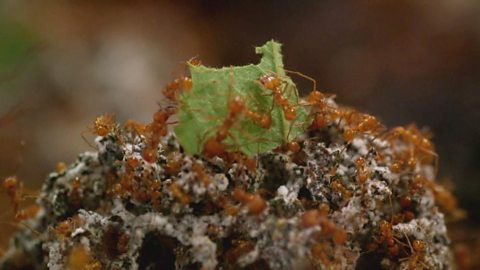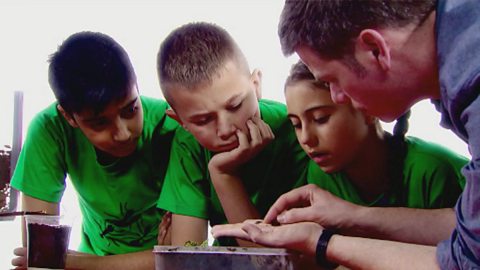
Professor Adam Hart is joined by a team of primary school scientists to explore the fascinating underground world of a leafcutter ant colony.
The young scientists get hands-on in their lab, carrying out their own investigations into the lives of these tiny insects - from reproduction to how they fit into the wider ecosystem.
Suitable for: Science/Biology at KS2 in England, Wales and Northern Ireland and 2nd Level in Scotland.

Inside an ant colony. video
The most important ant is the queen whose job it is to lay the eggs and there are also many different types of worker ants.
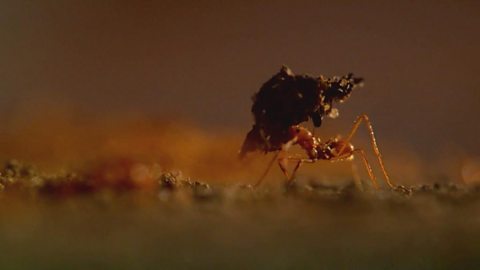
How ants communicate. video
The young scientists learn how ants communicate using chirping sounds called stridulation.

Why are ants different sizes? video
Dr George McGavin explains to the young scientists how the ant colony is organised into different types of ants, known as castes.
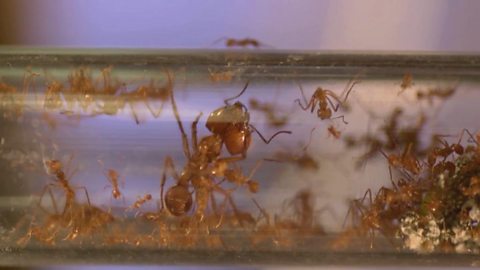
How to build a mini ant nest. video
The young scientists create their own small ant colony using plastic cups and make a pooter to collect the ants.
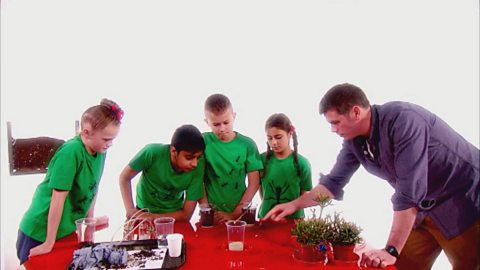
Life cycle of an ant. video
The young scientists learn about the life cycle of an ant, including how the eggs hatch into larvae.
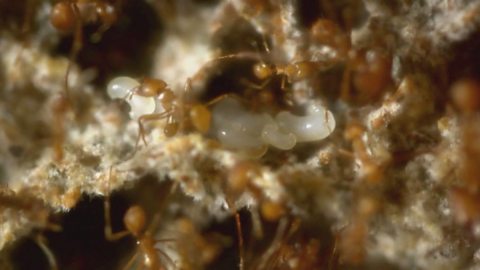
What ants eat and what eats ants. video
Young scientists draw lines connecting photos of different animals, according to whether they eat or are eaten by another animal.
